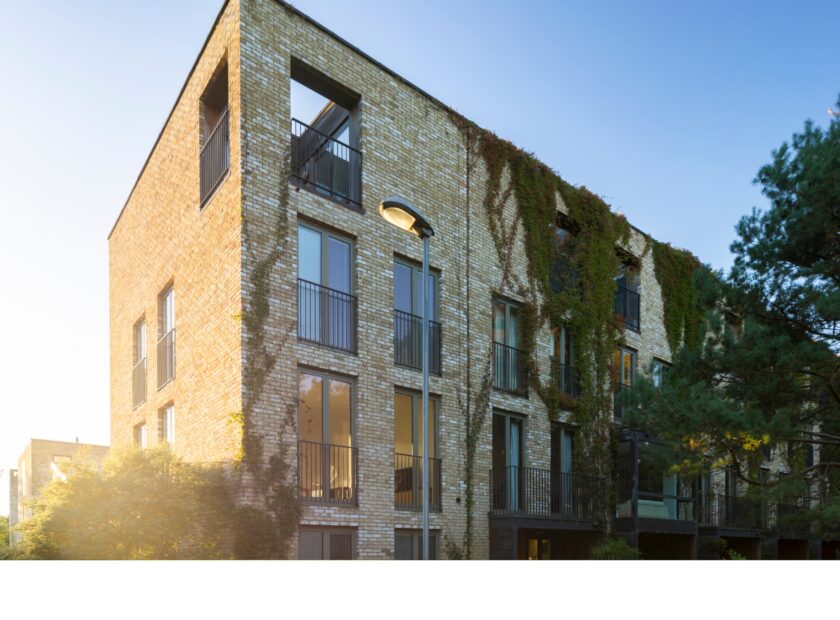Consensus not culture war is our only hope of building the homes we need.
There’s been a seismic change in the politics of planning over the last weeks, culminating in Monday’s opposition debate on the forthcoming Planning Bill. But with the government seeking to divide those worried about democracy from those in need of homes, is there any prospect that a fair and progressive system can emerge?
The Chesham and Amersham by-election was dominated by fears over planning reform and the impact of HS2. It revealed the depth of mistrust that the electorate feels in high demand areas over the governments planning reform agenda. While the Conservative party abstained on Labour’s motion seeking to guarantee local to democratic control of planning, the concern amongst Tory ranks both in and outside the chamber is growing in intensity. And this is not just about the South East. The assumption that people in red wall constituencies will sustain planning deregulation is deeply misguided. Tory voters in these seats are just as concerned as their southern friends with poor quality development in the wrong places over which they have no meaningful say. At the same time, new and large networks of community groups are emerging which are beginning to find their voices. Environmental NGOs are stiffening their resistance while a powerful property lobby is piling on pressure for further deregulation. Yimbys now shout at Nimbys in a debate which is highly polarised and completely unproductive.
As we reach Midsummer 2021, we can at least be clear that planning reform is in a mess and that these shouting matches on social media help nobody. The government’s approach has been to defend their reforms in the same way that the British order meals in foreign countries, by speaking ever slower and ever louder. Their view is that we have all misunderstood their intentions. In one sense, this is the price any government pays for a white paper which lacked evidential credibility and policy clarity.
It is ironic, given the intensity of the debate, that no part of the planning reform package dealt with the practical delivery of new homes, and so even if brought into law it will do nothing to increase the number of homes being built. The gap between rhetoric and detail is most extreme when it comes to the issue of democracy. No one on the government side has ever denied their intention to remove the right to be heard in person in plan making, nor the removal of the planning application stage where most people engage in decisions. Nor have they flexed on the implementation of permitted development which has rendered local councils and communities as bystanders in the future debate on their own town centres.
But the key point is that at no point has any effort been made to build a consensus between the increasingly angry voices surrounding planning reform. The problem is that by fuelling a battle between local democracy and housing needs the government is creating a dangerous culture war in which the real needs of the homeless get ignored and the fragile legitimacy of democratic planning will be broken.
It didn’t have to be like this. There is a consensus to be found, a balance to be struck, a way of reconciling the legitimate importance of local growth with robust representative and participative democracy. The Raynsford Review worked hard to show how this could be done, recognising that planning needs a careful constitutional settlement between the power of citizens voices and their aspirations for their local communities, and the needs of future generations around housing and climate change. There will never be a perfect way of resolving all of these competing interests, but it is possible to provide a new stability and legitimacy to the planning system – and that should be the goal of planning reform.
It may be that time has run out to rescue planning reform from the bitter conflict between communities and the development sector. If so, we have thrown away our last best hope of providing a decent home for those in need, addressing the climate crisis and securing our long-term health and well-being. But let’s never forget there was a much better way, a clear and consensual alternative. The outline of this blueprint was set out in the TCPA’s publication Common Ground. This document set out some simple principles which formed the basis of a stable, democratic and positive planning system. I would urge everyone who cares about our collective future to take a look and if it appeals send it to your local MP. I would also appeal to everyone across all sectors in planning to support the cause of consensus. If the government insists on pushing forward with the planning reform agenda in the face of widespread community opposition, nothing will get built anywhere by anybody.
Government needs to pause, think again, talk to people and show that it has the courage to deliver a lasting settlement in the public interest.



